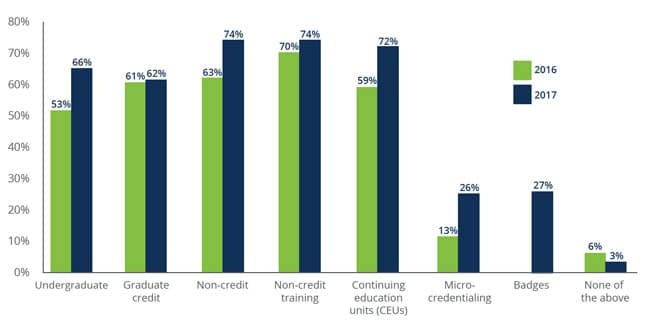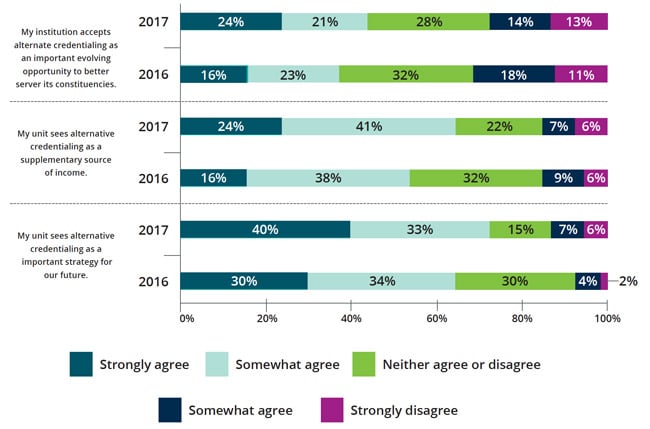Study tracks the increasing popularity of alternate credentials
One in four higher education institutions in North America now offer badges and three in four say that such alternate credentials are “strategically important to their future.” These are some of the headline findings of a new study from Pearson and UPCEA.
The study tracks the growing footprint of alternative credentials – which are defined as “something other than the associate, bachelor’s, master’s, and doctoral degree” – in the professional, continuing, and online education offerings of North American universities and colleges.
“Perhaps it’s time to see if there are different ways to prepare contemporary students for an increasingly complex knowledge and information economy, using methods that take less time, cost less money, and lead more directly to quality employment,” says UPCEA President Wayne Smutz. “At least some employers are beginning to think this might be the case, as they express frustration over not being able to find qualified employees for their vacant jobs. It is this possibility to improve the way we prepare students that drives the increasing exploration of alternative credentials, such as certificates [and] badges.”
As the definition above suggests, the study takes a broad view of alternative credentials to include so-called “stackable degrees” (i.e., certificate programmes within full degree offerings that can be laddered to degree completion), shorter-term “micro-credentials” (which may or may not be stackable toward a certificate or degree qualification), and badges. The latter is the trickiest of the bunch as it can be understood in a couple of different ways including to refer to “a specific, small-grain size of work-related skill or micro-credential.” However, the term can also be used to describe a standardised digital or data-based representation of a variety of alternate credentials.
As the following chart reflects, the percentage of UPCEA members offering alternate credentials across this spectrum has increased notably from just 2016 to 2017. Please note that in this context the terms “undergraduate” and “graduate credit” refer to stackable credentials within those levels of degree studies offered by responding institutions.

Strategically important
The following chart maps institutional perspectives around alternate credentials over the 2016 and 2017 survey years. Most significantly, it reflects a growing awareness of the relevance of alternate credentials to students and employers alike and, by extension, to the long-term position of the reporting institutions.



















